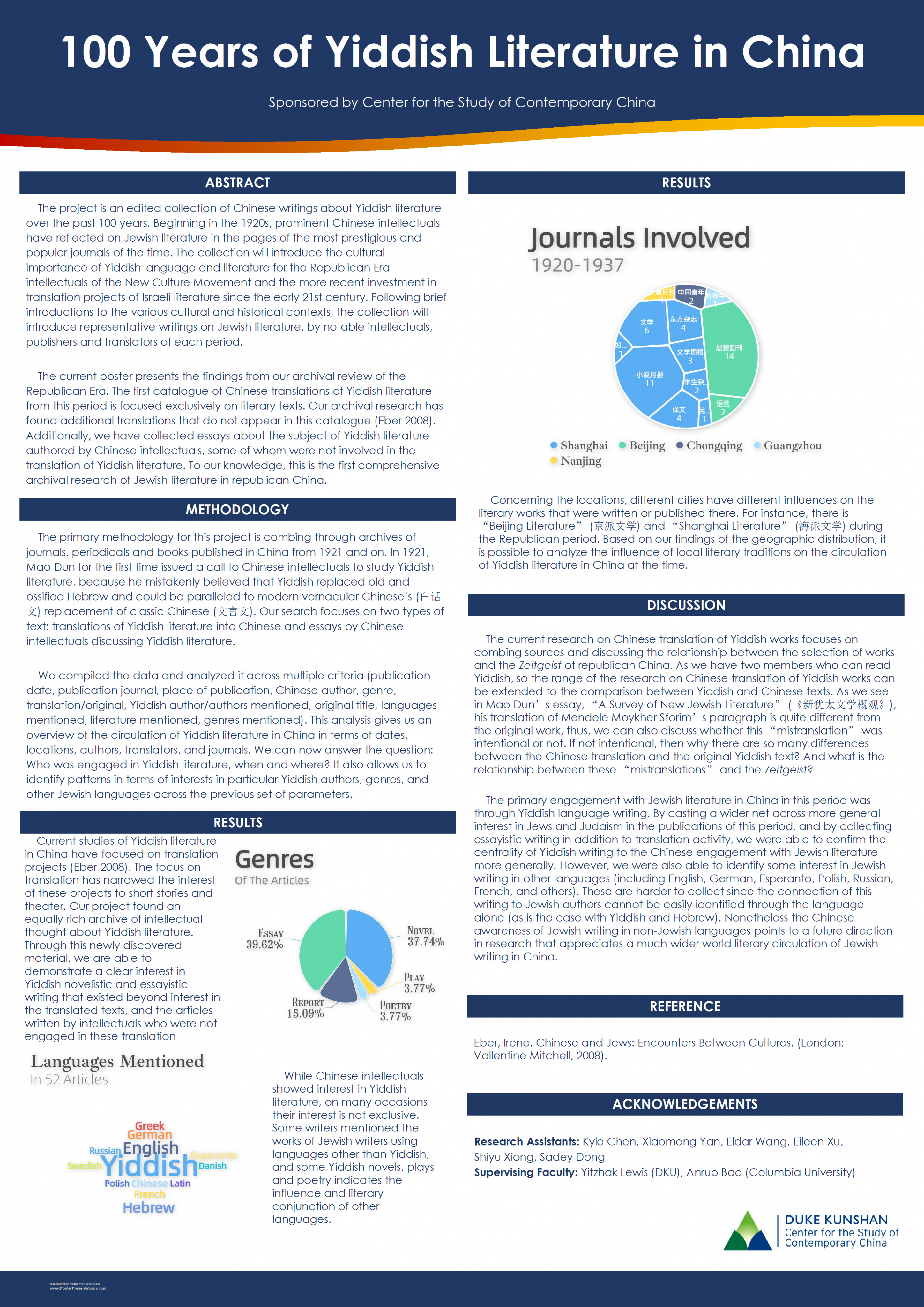
Supervisor: Yitzhak Lewis, Assistant Professor of Humanities
Student Researchers
Kyle Chen: I have been engaged in this project since last year. After exploring a variety of journals and discovering around twenty related articles in the period of the Republic of China era, I deeply realized a strong link between two cultures that shared similar historical memories. Either essays or translated novels conveyed the resilience of the Jewish people against struggles and the wisdom of stoicism towards life.
Xiaomeng Yan is a rising senior at Duke Kunshan University, majored in global culture studies under the track of world literature. She is interested in culture studies and anthropology.
Eldar Wang: I’m a rising senior majoring in Global Culture Studies-World Literature. Participating in this project allowed me to develop archival skills and hands on data visualization, as well as amplified my interest in modern literature.
Yilin Xu: I am Yilin (Eileen) Xu from Class of 2024, majoring in World Literature under Global Cultural Studies. I am prone to daze while reading, clumsy in words, and not very sociable. My biggest motivation is deadline. Most texts I have read in this project are about the history of Yiddish theatre.
Weiran Dong: I’m Sadey Dong, a rising sophomore at DKU. My intended major is U.S. literature or world literature. A hundred years of Yiddish literature offers me a new perspective of reading Chinese texts and teaches me to take into account elements that I used to take for granted.
Shiyu Xiong: My name is Shiyu Xiong and I am a rising junior student at DKU. I am interested in literature and languages, and my major is World Literature. Professor Yitzhak Lewis’s program gives me a chance to know more about Jewish literature and culture, and its contact and communication with Chinese society in the early and middle 20th century. Being a member of this program is a fantastic experience.
About the Project
The project is an edited collection of Chinese writings about Yiddish literature over the past 100 years. Beginning in the 1920s, prominent Chinese intellectuals have reflected on Jewish literature in the pages of the most prestigious and popular journals of the time. The collection will introduce the cultural importance of Yiddish language and literature for the Republican Era intellectuals of the New Culture Movement; the popular cultural status of Sholem Aleichem’s tales of peasants in the Mao era of the 1950s and 60s; the public purchase of Isaac Bashevis Singer as “world literature” in the period of Reform and Opening Up—which began in 1978, the same year Bashevis Singer won the Nobel Prize—and the more recent investment in translation projects of Israeli literature since the early 21st century.
Following brief introductions to the various cultural and historical contexts, the collection will introduce representative writings on Jewish literature, by notable intellectuals, publishers and translators of each period. The current poster presents the findings from our archival review of the Republican Era. The first catalogue of Chinese translations of Yiddish literature from this period is focused exclusively on literary texts. Our archival research has found additional translations that do not appear in this catalogue (Eber 2008). Additionally, we have collected essays about the subject of Yiddish literature authored by Chinese intellectuals, some of whom were not involved in the translation of Yiddish literature. To our knowledge, this is the first comprehensive archival research of Jewish literature in Republican China.